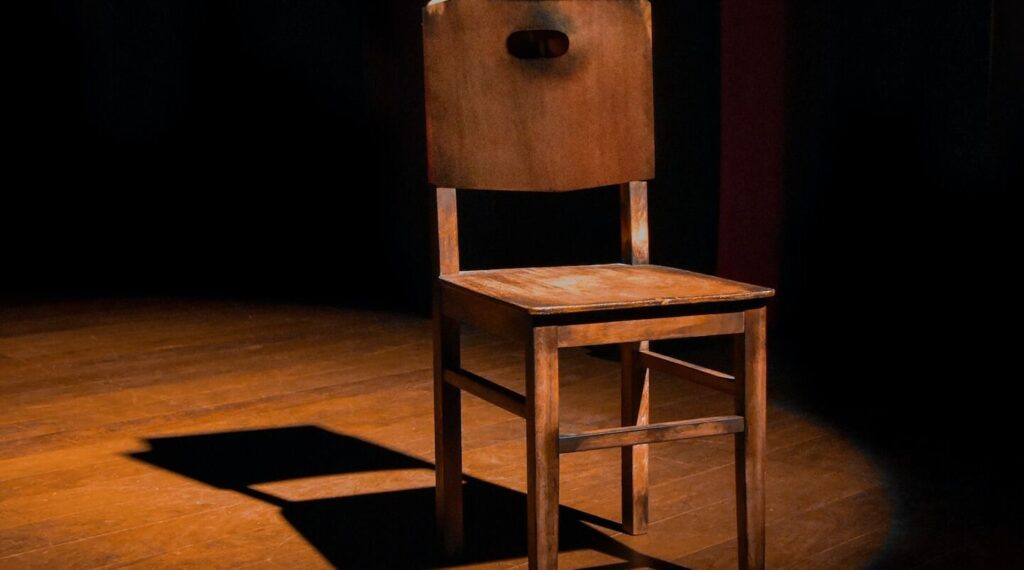Future Chair – tomorrow starts today

Challenging ourselves
There comes a time when individuals and organisations come to realise that they have to change themselves if they want to change the world. Inner transformation can be hard, uncomfortable work but also fulfilling and rewarding. It is not only the “what” that matters here, but the “how” and “why”.
The process counts. Processes are deeply entangled with the results we aim to achieve and can jeopardise them from within. After decades of a narrative of RBM (Results-based Management) in programming, monitoring, and reporting, this could mean a lot to unlearn.
What we lived through in the last few years has accelerated the quest for change among funders, researchers, and activists alike. A growing number of people and organisations call for new behaviors, mindsets, and ways of working.
In the face of the complexity, uncertainty, and volatility of the scenarios in front of us we can seize the opportunity to embrace the intersectional challenges we are facing in disruptive ways.
However, on the one hand we have new opportunities and ground-breaking knowledge and skills available; on the other, we face a double obstacle: the obsolescence of inadequate processes and tools and the persistence of mindset and cultural barriers.
Often, cultural barriers and obsolete processes are closely intertwined: only through a cultural transformation can new processes and tools be developed, or can we intentionally adapt and transform old ones, unlocking the potential of social transformation that the present day offers.
Questioning and challenging the status quo comes down to a larger framing that is always about power: the difference between domination and power, between concession and entitlement, between exclusion and capabilities; between patriarchy and generativity.
Sharing power has become a major vector to modify processes and dynamics. A paradigm shift is required in how we measure and value what matters to people and the planet. In the current dominant political, social, and economic systems that favour short-term gains and quick fixes at the expense of longer-term planetary and human well-being and prosperity, sharing power with young(er) generations and future generations could be one of the ways to reverse the status quo.
Being one of the distinctive features of institutional philanthropy – its capacity to remain engaged for the long haul – foundations could make a huge difference in taking the lead and embracing a future-generation approach in design thinking and decision-making.
Future generations and young generations of today
In 1998, I was recently graduated from law school, and I was living in Jaen, in Northern Peru, on the edges of the Amazonas region. I was working in the human rights office of an NGO and around the end of my year there, I had the chance to travel for three weeks with a team of medical doctors into the depths of the Maranon River region visiting the Awaruna and Wambiza people during their periodic health monitoring. The experience changed my life in many ways and somehow always stayed deeply seeded in me.
Many times, over the last 3 years, watching our planet burning, inequalities rising, and democracy deteriorating, the faces of the Awaruna and Wambisa people I had the privilege to stay with, came back to my heart. It is especially the idea – shared among many indigenous people – that “The earth is not an inheritance received from our fathers, but a loan to be repaid to our children” that I found disruptive vis-a-vis the mainstreamed extractive paradigms we pursue.
I remember one of the elders of the village of Santa Maria de Nieva telling us that in every decision we take, we should always listen carefully, take into consideration, and care for seven generations ahead of us. He used the word ‘listen’ about unborn people and I asked how that could be done. His answer was straightforward: By connecting with them and reminding ourselves of that, we leave an empty place at the table where decisions are taken.
This story came back to my mind in May 2022 in one of the deep, challenging discussions with my fellow participants in the United Nations Executive Leadership Programme for Sustainable Development – Leading for Systems transformation, linking the wisdom of the Awaruna leader to the recently published Philea report Stories of transformation: child and youth participation in philanthropy.
I do believe that the active, free, and meaningful participation of young people in the decision-making of our philanthropy organisations is one of the most powerful ways to care for and take into account future generations.
To deliver the 2030 Agenda through a reformed multilateral system, the UN Secretary-General will publish eleven policy briefs between March and July 2023. The policy briefs are intended to propose concrete actions under Our Common Agenda and to inform the discussions of Members States in advance of the 2023 SDG Summit and the Summit of the Future in 2024.
The first brief, published on 9 March under the title, ‘To Think and Act for Future Generations,’ provides several suggestions and practical steps in ensuring that intergenerational solidarity becomes the guiding star of sustainable development and renewal of the multilateral system.
Philanthropic organisations, with the unique role that they can play in society, have a key role in thoughtful leadership that unlocks potential in futures thinking and the freedom and capacity to start from today, engaging young generations in the decision-making process.
The power of Philea in shifting change
Philea’s potential goes beyond the sum of its members endowments and spending. It is uniquely placed to reach out to more than 10,000 philanthropy organisations with direct influence over hundreds of thousands of grantees and partners facilitating the adoption of innovative practices and bridging it to influential “system actors”, including governments, private sector actors, and the media.
In a vision of systemic change, we are much more than networks, membership associations, and infrastructure; we can be agents of change, developers, enablers, accelerators, and multipliers of social change to achieve sustainable development and equality and strengthen civil society and democracy.
We are the change. It’s not us versus them, it’s not them versus us. An initiative like Assifero’s Future Chair can prompt change through questioning and sparking inner transformation at individual and organisational levels, raising the bar of awareness so that each organisation can individually find its own solutions and methods.
Authors

